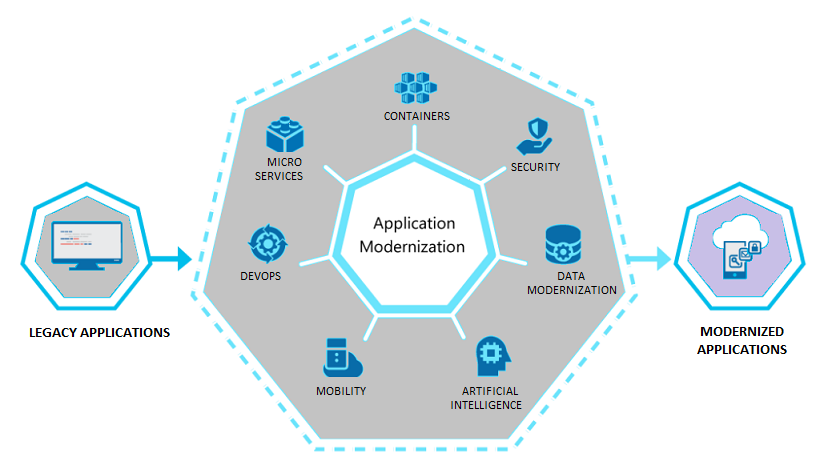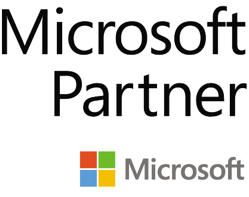
Legacy Application Modernization with Microsoft Azure
In today's fast-paced digital landscape, businesses face constant pressure to innovate and stay competitive. Legacy applications, while valuable, often hinder this progress due to their outdated infrastructure and high maintenance costs. However, there's a solution that allows businesses of all sizes to revitalize their legacy applications while reducing IT\SDLC expenses with – Microsoft Azure Cloud.
Microsoft Azure, a robust cloud platform, offers a pathway to migrate and modernize legacy applications effectively. In this blog, we'll explore three common scenarios in which you can leverage Azure to breathe new life into your aging applications.
Scenario 1: Cloud Infrastructure-based Applications (Lift & Shift)
In this scenario, enterprises migrate their existing on-premises applications to Microsoft Azure's Infrastructure as a Service (IaaS) platform. The core components of the applications remain unchanged, but they find a new home on virtual machines (VMs) in the cloud. This approach, often referred to as "Lift & Shift," is the ideal choice for businesses looking for a quick migration strategy [Migrate First Modernize Later].
Benefits:
- Speedy migration with minimal disruptions.
- Reduced infrastructure management overhead.
- A stepping stone for future modernization efforts.
Scenario 2: Cloud Optimized Applications
Enterprises can achieve additional benefits without undergoing a significant code overhaul. Azure enables applications to leverage modern cloud technologies such as containers or other cloud-managed services like database as service, App Services etc. These containers can be deployed on either App Service for containers or Kubernetes. There by further optimize the applications with better monitoring integrations, cache as a service, and continuous integration/continuous deployment (CI/CD) pipelines.
Benefits:
- Enhanced scalability and agility.
- Integration with managed cloud services.
- Reduced complexity and improved performance.
Scenario 3: Cloud-Native Applications
Driven by evolving business needs, this scenario targets the modernization of mission-critical applications. Here, Azure's Platform as a Service (PaaS) offerings come into play, facilitating the migration of applications to cloud-native platforms. This approach often involves developing new code, especially when transitioning to cloud-native or microservice-based models.
Benefits:
- Harness the full potential of cloud-native capabilities.
- Achieve unparalleled scalability and agility.
- Streamline development and deployment processes.
Key Business Benefits of Azure Migration:
1. Platform Benefits:
Microsoft Azure provides a comprehensive cloud stack, covering frontend, backend, data, intelligence, Ops, SecOps, and DevOps. It offers a powerful and flexible foundation for both existing and new applications.
2. Security:
Azure prioritizes security with built-in services and intelligent threat management. It ensures the safety of your workloads and data.
3. Fully Managed:
Azure's built-in auto-scaling, CI/CD, load balancing, and failover capabilities eliminate the need for complex configurations, saving time and resources.
4. Superior Tooling:
Azure offers advanced monitoring, telemetry, and debugging tools, along with seamless integration with popular development platforms like Visual Studio, GitHub, BitBucket, and Azure DevOps.
5. Familiarity:
For businesses using ASP.NET apps, Azure is enterprise-ready and supports your existing knowledge and skills, making the transition smoother.
Conclusion:
Modernizing legacy applications is not just about staying up-to-date; it's about unlocking new possibilities, reducing costs, and ensuring long-term sustainability. Microsoft Azure's robust features and flexible migration options empower businesses to transform their legacy systems into agile, high-performance assets that drive innovation and competitiveness in today's digital landscape.
Are you looking to modernize yours for applications? Our team can help transform your applications to become more agile and efficient. Contact us.





